‘Can’t do this again’: anxiety high in Rochester as flood risk looms
Residents fear Rochester could flood again before it recovers from last year’s devastation, with skip bins still lining the streets, houses stripped back to shells while families live in caravans and many businesses still closed.
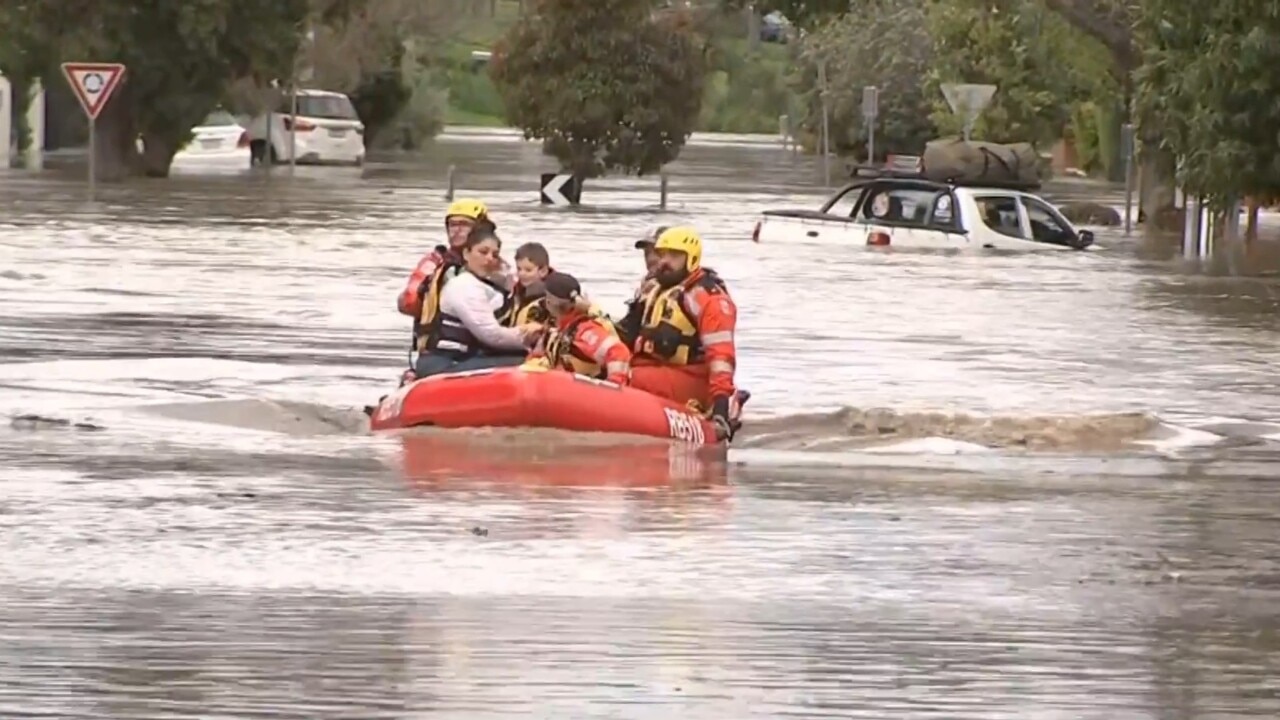
Victoria
Don't miss out on the headlines from Victoria. Followed categories will be added to My News.
Twelve months on from the floods that devastated the area, Rochester is still a town on edge.
The streets are still lined with live-in caravans and skip bins full of debris.
Many houses have been stripped back to shells and some businesses remain closed, unlikely to ever re-open.
Scattered around town are signs, black spray paint on plain white cloth, with a simple message: “We can’t do this again. Mitigate.”
It’s a feeling that is widespread across Rochester, with Lake Eppalock sitting near capacity, many in town wonder what’s to stop it from happening again.
Local publican Ian Crouch says people who came through the doors of his pub, the Shamrock Hotel, often talked about being anxious.
There is a lingering fear the town could flood again before it has recovered from last year’s devastation.
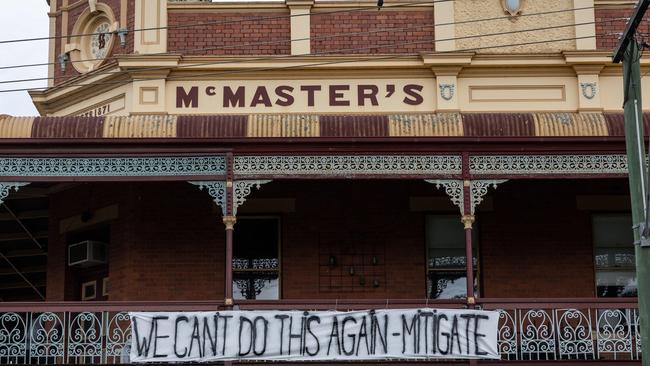
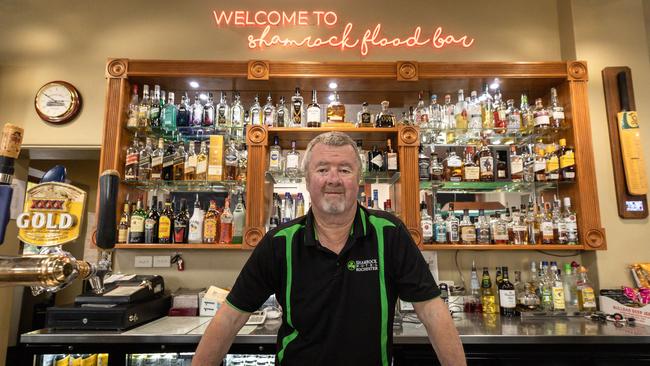
“Everyone’s on edge,” he says.
“Last week the rainfall we had was rather large and the water that gathered around Kyneton and the areas where the run-off is was about 60-70 ml.
“We were lucky that most of it got soaked in because the ground was so dry, but everyone was on tenterhooks around town.”
Some former residents have packed up and left Rochester, unable to deal with the threat of another flood.
Among them was the pub’s former chef, who chose to leave town for good.
Mr Crouch now finds himself doubling as the cook at his pub.
Local farmer and real estate agent Luke Ryan says there was a clear trend of locals leaving town.
“The current market has a lot of houses that had water go through them,” he says.
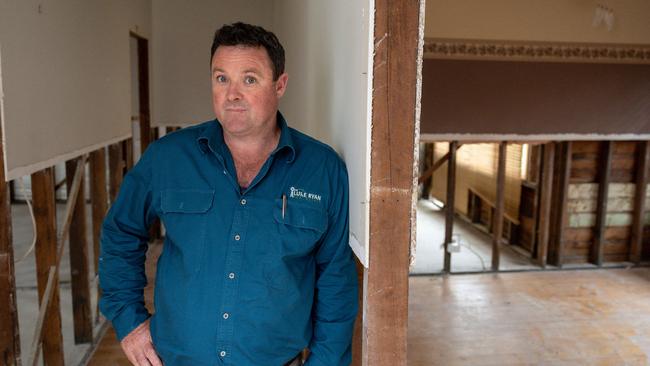
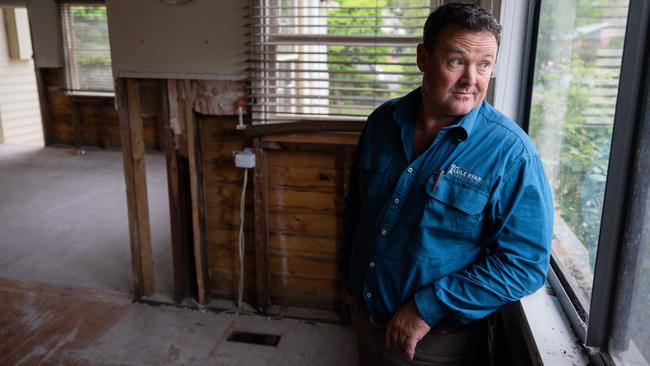
“People selling them don’t want to go through a rebuild.
“There will be more of them coming to market, I expect, because people have been traumatised by the event and you can’t blame them for that.
“There are people that will go because it’s been distressing for them and they just can’t go through it again.”
It’s an issue that could be helped and some of the anxiety alleviated, if Lake Eppalock was managed better, according to Mr Ryan.
“At the moment the lake is full and the government doesn’t have any rules in place that provide for proper management of that,” he said.
“That lake was built as a flood mitigation device and the capacity irrigation system was a by-product of that and we were using the water, effectively getting rid of the water and keeping the lake at a manageable level.
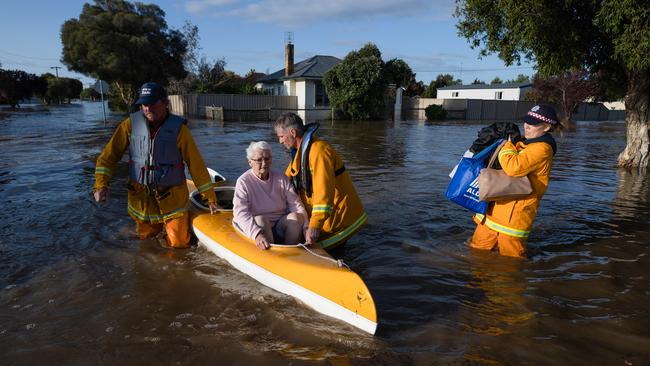
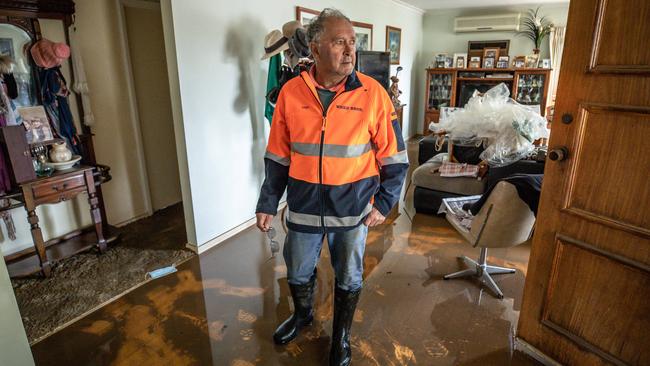
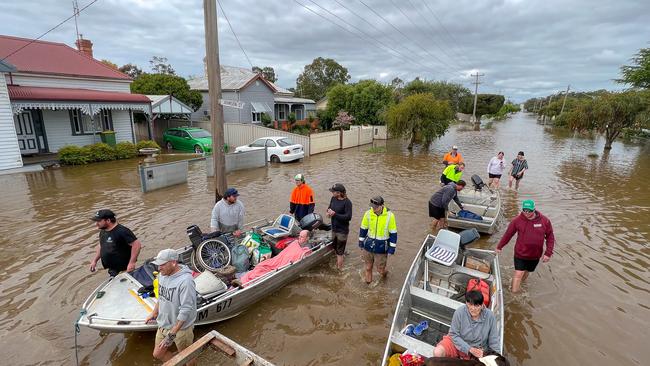
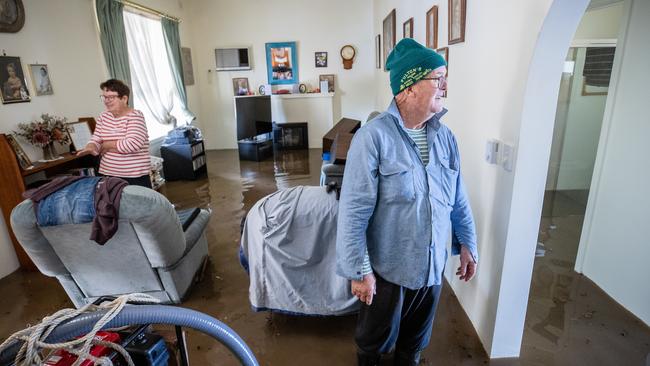
“The government closed that capacity system down when they purchased all that water.
“So, all of a sudden, that water that has been purchased by the government is not being used, it’s being stored.
“I believe there’s a real need to change the policy on how that lake is operated.”
Mr Ryan isn’t the only person to feel that way, Mr Crouch also believes that the lake is at the heart of the problem and supports a community group who have formed a flood committee to try and get some answers.
It’s this committee which has made the signs that can be found around town, including the one hanging from Mr Crouch’s pub balcony.
“Business owners and teachers, everyone that’s fairly well known in the community have got their heads together and formed the flood committee,” he said.
“They’re pushing boundaries and trying to get some answers about the water.
“Having the water released so it’s more controllable.
“It’s a shit show and hopefully the committee can get some answers.“
Different management of Lake Eppalock could help avoid another flood in town but it could also help the community’s more vulnerable residents cope.
Though the water may have subsided and the debris largely cleared in the year since Rochester’s streets went underwater, it is the mental scars of the floods that will take the longest to heal.
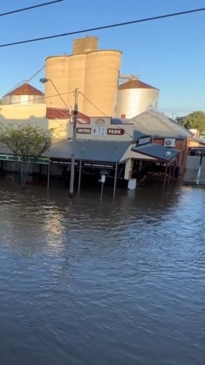
Among those struggling the most rattled are Rochester’s elderly residents.
Football club president Justin Cleary said he has seen their anxiety first-hand.
“My mother, who was 83 years old last year, was living in a unit just up the road from me and living well,” he said.
“She was walking the dog every day and was physically capable.
“But six-months post flood, we had her unit back ready to go and she couldn’t manage it. “We’ve had to put her into care.
“She’s in that age demographic of 75 and above and it’s cooked them, it really has, it’s even killed some.”
Publican Mr Crouch says another flood would have more wide-reaching devastation than on the elderly.
“I think if it happened again, it would probably destroy Rochie,” he said.
Nobody untouched by disaster
No one from the town of Rochester walked away unscathed following last year’s floods.
But some lost both their home and their business.
Newsagents Kim and Brian Dingwall had to move shops following the disaster.
“Our business used to be across the road,” Ms Dingwall said.
“We had 47 cm of water go through.”
Ms Dingwall said the couple’s priority following the flood was getting the business “back up and running”, but they had no help from their insurance company.
“We’ve learned the ins and outs of insurance,” she said.
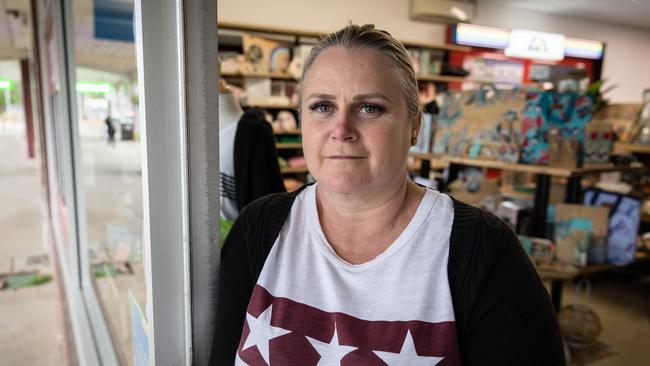
“We couldn’t get flood insurance for the business, we could only get business interruption insurance, but that doesn’t actually kick in unless you are insured for the event that interrupted your business.
The anomaly left the newsagency with effectively no coverage.
Ms Dingwall said they fitted out their new store differently, as a countermeasure against future floods.
“For this shop we have put in all metal fixtures, so the only thing that would be affected is our shop counter,” she said. “All our fixtures at our old store were melamine so every bit of water that got in, it sucked it up.”
The plan was to try re-use what they could in the new shop but the couple soon found out that wasn’t an option.
“We tried to keep some stuff, but then we noticed it starting to bow,” Ms Dingwall said.
“It ended up being choc-a-bloc full of mould. We actually started to get sick from that.”
Soul of a town
The football and netball club is the heart and soul of most country towns.
In Rochester it has been the place for the devastated community to gather and heal over the past year.
As the floods subsided and pre-season training began, the Rochester Tigers decided to spend the season doing all they could to support the town.
Their efforts were recognised when the Tigers were named Community Club of the Year at the 2023 Toyota AFL National Volunteer Awards.
President Justin Cleary was the driving force behind the club’s achievements.
“We started the initiative we named Recovery and Reconnect,” he said.
“The first part of that initiative was to say, ‘right, we want a place for our community to all come together’.
“People were everywhere, Bendigo, Echuca and further afield staying in caravan parks and emergency accommodation.
The club gave out free memberships to the entire community to bring the town back together on weekends.”

The initiative couldn’t have happened without the supporters from across the state, Mr Clearly said.
“This was going to be quite a financial cost for the club, because we would normally sell memberships as well as entry at the gate,” he said.
“To offset that we ran a program called Shout a Membership for Rochester, which was received overwhelmingly well.
“It exceeded our expectations, people from all over purchased memberships to give to families.”
The influx of meant the club was able to go even further in supporting players.
The club was able to cut insurance fees and uniform fees.
It also hosted special events at home games, with mental health experts and insurance companies.
Winning the award was a great feeling for everyone at the club, Mr Cleary said, but it was more exciting to see the initiative achieve what it had set out to.
“We saw people from town that we don’t normally see at our local footy, come down and engage and get involved” he said.




